The crew is back in Washington DC for the 2024 NPA Fly-In Day, held on May 22, 2024! This podcast was filmed the night before, featuring a star-studded cast that includes:
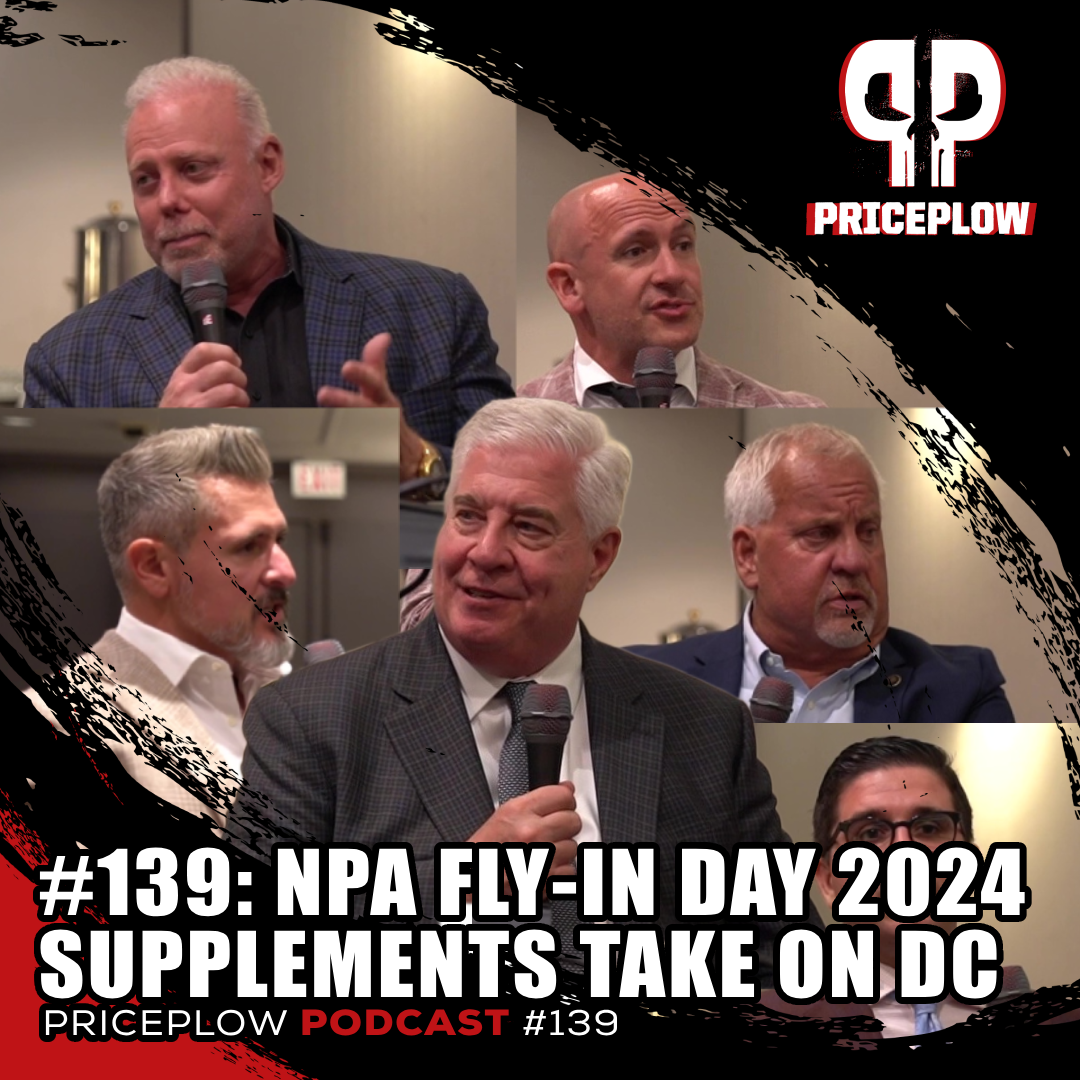
Team PricePlow's Back in Washington DC for the 2024 NPA Fly-In Day, and this podcast has an epic cast: Jim Emme, Rick Collins, Mark Ledoux, Mike DiMaggio, and more!
- Jim Emme, CEO of NOW Foods
- Kyle Turk, Natural Products Association
- Rick Collins, the one and only
- Mike DiMaggio, Chief Legal Officer at NutraBolt
- Mark LeDoux, founder and CEO of NAI (CarnoSyn)
- Dan Fabricant, Natural Products Association
And it features Joey Savage as an added interviewer.
Unfortunately, our opening with Dan Fabricant and a bit of the beginning of Jim Emme's interview was lost due to a corrupted memory card. Regardless, this is a knockout series of discussions ranging from the ongoing political issues in DC and at the states level to the incredible background and history of Rick, Mike, and Mark's respective careers.
Get ready for a fantastic 2-hour conversation, and be sure to see the NPA's Take Action page and join the organization at NPANational.org.
Subscribe to the PricePlow Podcast on Your Favorite Service (RSS)
https://blog.priceplow.com/podcast/npa-dc-fly-in-day-2024
Video: Join the Fly-In Day Pre-Party
Podcast: Play in new window | Download (105.0MB)
Detailed Show Notes: Jim Emme, Kyle Turk, Rick Collins, Mike DiMaggio, Mark LeDoux, and Dan Fabricant
-
0:00 - Introducing Jim Emme and Joey
Mike and Ben are in Washington DC for the NPA's fly-in event, where they host Episode #139 of the PricePlow Podcast. Revolving around relevant questions of industry integrity and consumer protection, this first segment features Jim Emme, CEO of NOW Foods, and Joey Savage, who joins the group for the whole episode. Jim begins by sharing a detailed case where his company discovered fraudulent activity on Amazon involving Coenzyme Q10 products being sold with inferior ingredients like rice flour instead of the advertised active ingredients.
Jim explains the analytical process they undertook, leveraging their extensive laboratory resources to test products, and the approach they adopted in dealing with the implicated companies, which involved privately informing them of the discrepancies rather than going public immediately.
This measured approach led most companies to rectify their issues, although one threatened legal action. The broader implications of such industry malpractices, including the lack of adequate response from Amazon, the FDA, or legislative bodies, are also discussed, highlighting the challenges and frustrations of ensuring product quality and consumer safety in a market flooded with unscrupulous vendors.
-
6:30 – The FDA's inaction
Team PricePlow flew into Washington DC for the Natural Products Association's 2023 Fly-In Day, recording a great tell-all podcast with NPA's CEO, Dan Fabricant, who tells us in PricePlow Podcast Episode #100 why we should be involved in our industry's politics.
Despite finding that some products sold on Amazon contained inferior ingredients like rice flour instead of the advertised active components, actions taken by the FDA and Amazon have been frustratingly minimal, often only responding when products are reported. Jim highlights the proactive measures his company takes, such as testing products and sharing egregious violations with the Natural Products Association, which then reports them to regulatory bodies.
He shares an anecdote about a productive meeting with the FDA, emphasizing the importance of dialogue and persistence in pushing for regulatory enforcement. Additionally, he mentions a meeting with Senator Markwayne Mullin, underscoring the necessity of educating decision-makers and the challenges in getting them to prioritize these issues.
-
11:45 – Economic harm and deceptive practices
The group expresses frustration at the lack of action from the FDA, noting that the agency typically only intervenes when there is significant harm to consumers. They explore the challenge of competing against emotional arguments in legislative contexts, particularly when adverse effects are not immediately evident, as is the case with non-harmful but misleading ingredients like rice flour.
Jim shares insights from a recent meeting with the FDA, explaining that the agency prioritizes cases with safety concerns, even though economic harm and deceptive practices also deserve attention. The conversation turns to potential self-policing strategies, such as forming groups to sue fraudulent actors, highlighting ongoing struggles to ensure product integrity and the need for legislative and regulatory support to protect consumers.
-
16:27 – Quality and transparency initiatives by NOW
Ben and Mike discuss the positive impacts of industry scrutiny on creatine brands, particularly highlighting the transparency and quality improvements driven by public and regulatory attention. Jim is credited for his leadership in advocating for quality and transparency within the industry, and for setting an example of accountability through his company's actions, including handling recalls responsibly.
The discussion also touches on Jim's recommendation for consumers to trust NSF-certified products and his company's specific products as reliable choices. Ben and Joey commend Jim for his proactive role not just in his company but in the industry at large, emphasizing his commitment to maintaining high standards and his active participation in industry events. Jim modestly deflects the praise, attributing the success to his team and the overarching values of his company.
-
19:00 - Part 2: Kyle Turk from NPA
This next segment welcomes Kyle Turk, the Director of Government Affairs for the Natural Products Association, where he discusses his role in bridging the gap between the dietary supplements industry and government entities. He describes his background in economics and public policy, emphasizing his work in connecting members of the industry with both state and federal legislators to educate them on the importance and impact of dietary supplements.
Kyle outlines the process of lobbying and advocacy, noting his involvement in creating and promoting policies beneficial to the industry, such as enabling the purchase of dietary supplements with FSA and HSA funds. He highlights the value of educating lawmakers about the industry to ensure informed policy-making and discusses the various strategies used to effectively communicate and market policy ideas to legislators.
-
24:00 - Organizing the fly-in day
Kyle describes his role in organizing a "fly-in day" where individuals from different states, such as Oklahoma, Texas, and New Jersey, come to discuss their concerns and opportunities with their respective congressional representatives. He explains the logistics of matching participants with their senators and House representatives, as well as members on relevant committees that can influence policies impacting their businesses.
Kyle likens the event to speed dating, emphasizing the importance of efficiently using the limited time to build relationships and discuss the industry's direction and needs. He also addresses the effectiveness of leveraging existing laws and Congressional oversight to hold agencies like the FDA accountable, rather than always trying to create new legislation.
-
27:15 – Engaging with legislators
Kyle discusses how to effectively engage with legislators during a scheduled meeting, emphasizing the importance of presenting clear, actionable requests such as sending a drafted letter to the FDA to address industry issues. He explains the significance of making it easy for legislators and their staff to understand the industry's concerns and use their oversight powers effectively.
Join us, read our 'Lobby Day Training' article, and come ready for 2024's NPA Fly-In Day. Pictured: Mike with Senator Markwayne Mullin of Oklahoma from 2023's Fly-In Day
The conversation also touches on the disparity in representation between the dietary supplements industry and larger associations, highlighting the challenges of gaining attention among many competing interests. Kyle notes the personal relevance of dietary supplements to many legislators, which can be leveraged to educate and influence policy. Kyle tells an anecdote about a previous meeting with staffers that underscored the importance of label accuracy in supplements, illustrating the potential impact of personal connections and real-world implications on legislative advocacy.
-
31:45 – The need for widespread participation
Kyle stresses the need for broad participation from all states, including those currently underrepresented, to ensure comprehensive advocacy and influence. He compares the process to voting, describing it as essential and impactful, not just a formality. The conversation highlights the effectiveness of these engagements in educating legislators about the industry and influencing policy. Kyle and the hosts discuss strategies for improving participation and representation at future events, aiming to enhance the industry's influence on regulatory and legislative processes.
-
36:56 – The importance of following up
The group discusses the importance of following up after initial meetings with senators and their staff to maintain influence and relevance in legislative processes. They emphasize the role of staffers, who are crucial in dealing with legislation and have significant staying power in their positions.
Kyle advises using relevant updates and articles to keep in touch with these contacts, making follow-up communications timely and pertinent to ongoing legislative changes or notable events. This approach is likened to sales strategies, where keeping the communication relevant and continuous can significantly impact legislative support for their causes.
-
40:45 – Part 3: Rick Collins and Mike DiMaggio
In this podcast segment, Ben and Mike introduce Rick Collins, AKA the "Steroid Lawyer", and Mike DiMaggio, Chief Legal Officer at NutraBolt. Rick shares anecdotes from his early career, including a small role in the first season of "The Sopranos" and his surprise at the show's success.
He also discusses his extensive legal career, starting as a prosecutor before moving into private practice just as anabolic steroids were reclassified by Congress in 1990. This change prompted Rick to become a key legal expert on steroids, leading him to create the website steroidlaw.com and contribute to the field through writing and advocacy. His expertise expanded into the sports nutrition industry, dealing with regulatory issues and representing companies faced with legal challenges.
-
49:45 – Mike's story
Mike DiMaggio shares his journey from aspiring to work in "bodybuilding law" to becoming the Chief Legal Officer at NutraBolt, which owns several major fitness and health brands. Mike reminisces about his fortuitous meeting with Rick through a chiropractor they both knew.
Inspired by Rick's work, Mike interned for him during law school, leading to a position at Rick's firm where he gained extensive experience in the legal aspects of performance-enhancing drugs. Mike discusses their work together, representing various clients within the sports and health industries, emphasizing the importance of safety and compliance. Eventually, Mike's focus shifted towards the supplement industry, where he aimed to ensure companies adhered to regulatory standards, while Rick continued to dominate in legal matters related to performance-enhancing drugs and bodybuilding.
-
56:04 – Contamination
Ben and Mike Dimaggio discuss the incidence of athletes being accused of steroid use due to tainted supplements. Mike explains that although contamination was common during the peak of the prohormone industry due to shared manufacturing facilities, it is much rarer today thanks to improved testing practices and certifications like NSF Certified for Sport.
He notes that while not all companies pay for NSF certification, many use certified manufacturers, which greatly reduces the risk of contamination. The conversation reflects on the shift from earlier times when cross-contamination was frequent and detection technology was less advanced, leading to numerous high-profile cases of athletes testing positive due to tainted supplements.
-
1:02:15 – Ramifications of youth-oriented legislation
Ben, Rick, and Mike Dimaggio discuss the potential ramifications of new legislation in New York impacting the supplement industry. They express concerns about a recent initiative linking muscle-building and weight-loss supplements to eating disorders in adolescents, criticizing the scientific basis and arguing it's more about politics.
Rick highlights the precedent set by New York, fearing it could lead to similar laws in other states. Mike emphasizes that while their products are already not intended for minors and lack research on effects under 18 due to ethical concerns, the new laws requiring ID for purchases (even online) could unnecessarily restrict adult access to supplements. This discussion encapsulates the tension between protecting youth and maintaining access for adults within the regulatory landscape.
-
1:09:00 – A fragmented regulatory framework
If you're in the dietary supplement industry, and you haven't heard of STRIPED (Strategic Training Initiative for the Prevention of Eating Disorders), then you better catch up and take note. This is the well-funded Harvard group that is coming after dietary supplement sales to minors -- and they recently won big in New York. This article discusses their tactics, and how the supplement industry is woefully unprepared to take on this level of political warfare.
The group discusses the implications of new legislation concerning supplements, focusing on New York's laws which could potentially influence federal policies. They highlight additional taxes and fees for verifying buyers' ages and criticize the restricted access to supplements as potentially unconstitutional.
Rick emphasizes the complications arising from state laws that might conflict with federal regulations, suggesting a fragmented regulatory environment across the states. They stress the importance of educating federal legislators to prevent widespread restrictive laws similar to New York's. Mike outlines his strategy for engaging with legislators like Senator Ted Cruz, focusing on the benefits of the supplement industry, its economic contributions to Texas, and the broader implications of restrictive laws on Americans' rights and autonomy.
-
1:15:39 - Highlighting benefits of the industry
The group emphasizes the need to make the industry's contributions visible to senators and representatives by highlighting its economic benefits and health-promoting qualities. By drawing connections to local constituents, jobs, and tax revenues, they aim to personalize the industry's role and relevance to lawmakers.
Mike notes the presence of key industry players at the meeting, including executives from well-known retail and manufacturing companies, illustrating the industry's widespread influence across states. Rick adds that combating the perception of the industry as "unregulated" is crucial, especially given the influence of media narratives on legislative perspectives. The segment underscores the importance of active representation in political spheres to ensure the supplement industry is recognized and accurately portrayed.
-
1:23:15 – Pt. 4: Mark LeDoux
Mike and Ben welcome Mark LeDoux, the chairman and founder of Natural Alternatives International, shares his background and the origins of his interest in natural supplements over pharmaceuticals. Mark started his career 46 years ago in a garage, initially without any knowledge of beta-alanine. He describes his college days where he worked as a scrub tech in an operating room, which not only helped him in his studies but also led him to contemplate a medical career due to his exposure to the medical field's impacts.
However, after witnessing the effects of drugs on patients and being waitlisted at several medical schools despite high board scores, he decided to move to California to focus on natural alternatives to drugs. This decision was driven by his observations of the negative impacts of traditional medicine and a desire to explore healthier options.
-
1:27:20 – The origin of NAI (Creators of CarnoSyn)
Mark recounts the origin and philosophy behind his venture, Natural Alternatives International, which began in his garage. Focused on finding natural ways to help the body heal itself, Mark conducted extensive research in medical libraries and learned from various cultural and international sources, including traditional American Indigenous remedies and German Commission E Monographs. He discovered that combining herbs, vitamins, and minerals could stimulate metabolic responses, offering a natural alternative to drugs, which he notes often come with significant side effects.
Mark also shares anecdotes from his early career, including working with Harold Cutler at New Life in Long Beach, which sparked his interest in the natural products industry. His narrative illustrates a pioneering spirit in natural health from the 1970s, driven by a belief in the efficacy of natural substances over conventional pharmaceuticals.
-
1:30:30 – Exploring natural health solutions
The Natural Products Association (NPA) has sued the State of New York (specifically attorney general Letitia James, not pictured here) over the state's unconstitutional restrictive dietary supplement law
Mark shared insights into his foundational years starting Natural Alternatives International, highlighting his focus on natural remedies as an alternative to pharmaceuticals. He spoke about his early experiences, such as innovating production processes to ensure product quality which led to a substantial decrease in product returns.
Mark also recounted his transition from improving products like acidophilus to exploring broader natural health solutions, eventually leading to significant business growth through strategic product enhancements and catering to nutrient deficiencies. His narrative touched on legislative challenges and the importance of differentiating natural supplements from pharmaceuticals within regulatory frameworks. Mark's journey culminated in his research into beta-alanine, marking his long-standing commitment to advancing natural health products.
-
1:40:00 – The development of beta-alanine
Mark enthusiastically shares the history and development of beta-alanine, tracing it back to its roots and explaining its significance in the sports and health industries. Mark recounts how he started his company, Natural Alternatives International, aiming to find natural remedies to enhance bodily functions. He discovered the importance of beta-alanine as a rate limiter in the production of carnosine in the body, which is crucial for muscular endurance and performance. His insights led to the popularization of beta-alanine among athletes, especially when he provided it to the British Cycling Team, which significantly improved their performance and won medals.
Mark also discusses the challenges and successes of ensuring product quality and effectiveness, emphasizing the scientific validation and clinical studies that distinguish reputable products in the supplement industry. His journey highlights a deep commitment to providing products that genuinely benefit users, supported by rigorous scientific evidence.
-
1:45:30 – Building trust and relationships
Mark discusses his advocacy role during the NPA's fly-in day event, emphasizing the importance of building trust and relationships with permanent staff on Capitol Hill rather than focusing solely on the transient nature of elected members. He stresses the value of establishing credibility through consistent and honest communication, sharing that many staffers rely on trusted sources to navigate complex legislative materials.
Mark reflects on his transition from medical settings to the natural supplements industry, underscoring his commitment to doing things right and leaving a positive legacy. He expresses frustration over the misinformation prevalent on platforms like TikTok, which often misrepresents the efficacy and quality of health products, potentially tarnishing the industry's reputation.
-
1:48:45 – Localized efforts
Mark outlines a three-tier problem involving unscrupulous sellers, manufacturers, and suppliers of inferior products. He suggests that industry insiders who are committed to integrity should use their connections to enforce regulations more effectively.
Mark also proposes raising public awareness and engaging with local government officials to address the issues, emphasizing that more granular, localized efforts could be more effective than waiting for federal agencies to act. He underscores the need for community-level involvement, particularly from aspiring politicians who could influence regulatory practices, to ensure that harmful or deceptive products are addressed before they cause harm.
-
1:52:30 – Ongoing, proactive engagement
Mark Ledoux discusses the importance of proactive engagement in advocacy, especially within the dietary supplement industry. He highlights the value of building relationships with staffers and authorities to foster trust and ensure industry concerns are heard and addressed. Mark criticizes the reactive nature of some industry members, urging a more offensive approach to regulation and public perception issues.
He suggests using connections with regulatory bodies to address problematic products and misleading marketing practices that could harm the industry's reputation. Mark emphasizes the importance of ongoing engagement, not just one-time efforts, to influence legislation and public policy effectively. He stresses that involvement in advocacy is crucial for shaping the industry's future and ensuring that regulatory actions reflect the reality of the products' safety and efficacy.
-
1:55:00 - Closing out with Dan Fabricant
We got to thank Dan for bringing us in to be media partners with the NPA. Unfortunately, we lost the first ten minutes of our conversation with Dan, due to corrupted memory card, but you can get the vibe of the conversation - the time to fight is here... and there's nobody you'd rather have in your corner than Dan!
Important Links
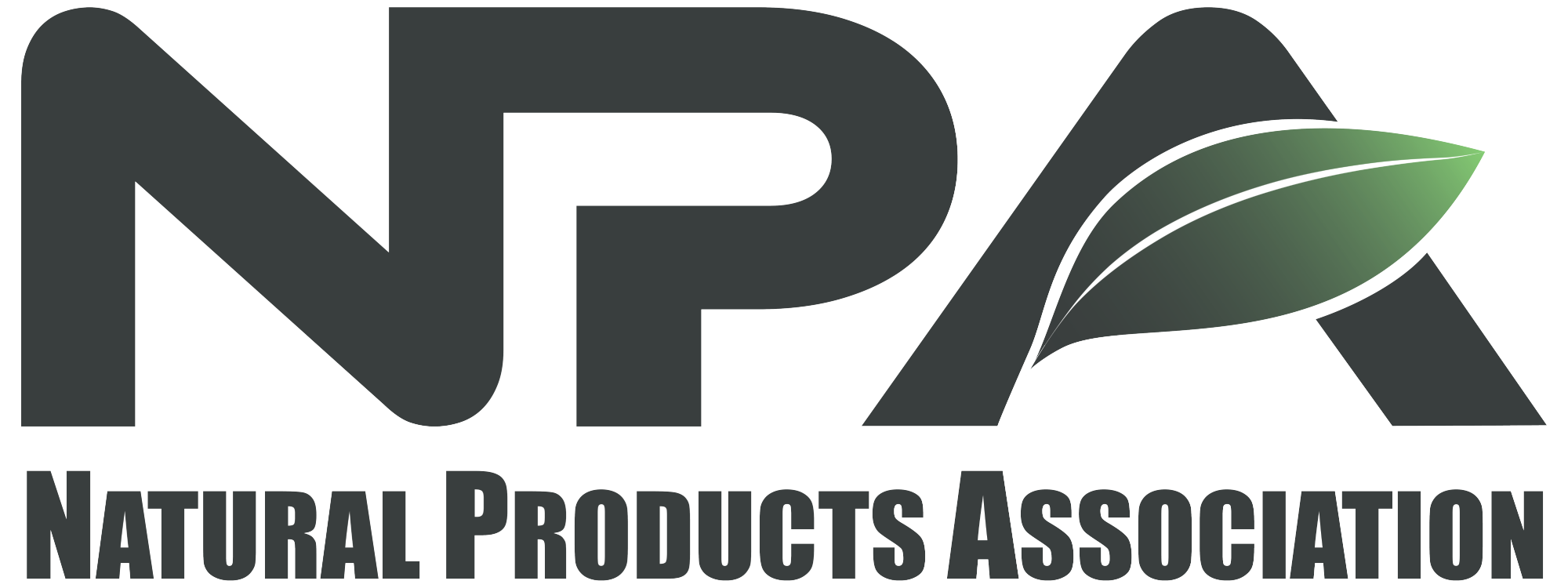
The Natural Products Association (NPA) is the nation's leading trade association for dietary supplements and natural health products. See the NPA's Action Center
- NPANational.org
- NPA's Take Action Page
- NPA on LinkedIn
- Dan Fabricant on LinkedIn
- Listen to Episode #100 with Dan Fabricant
Thanks to Dan Fabricant and the NPA for hosting us. We met incredible people in the industry and are honored to represent the supplement industry in front of our congressmen.
Return to the PricePlow Podcast and don't forget to subscribe on the platform of your choice.



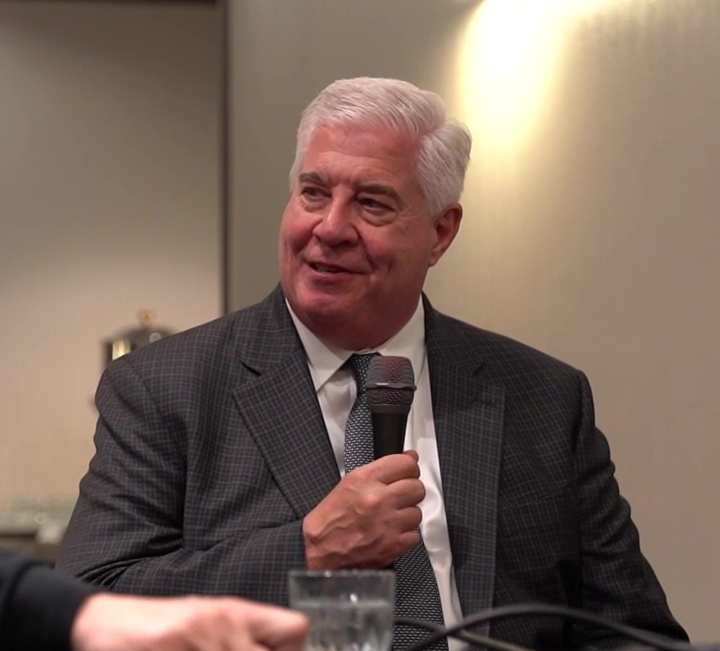
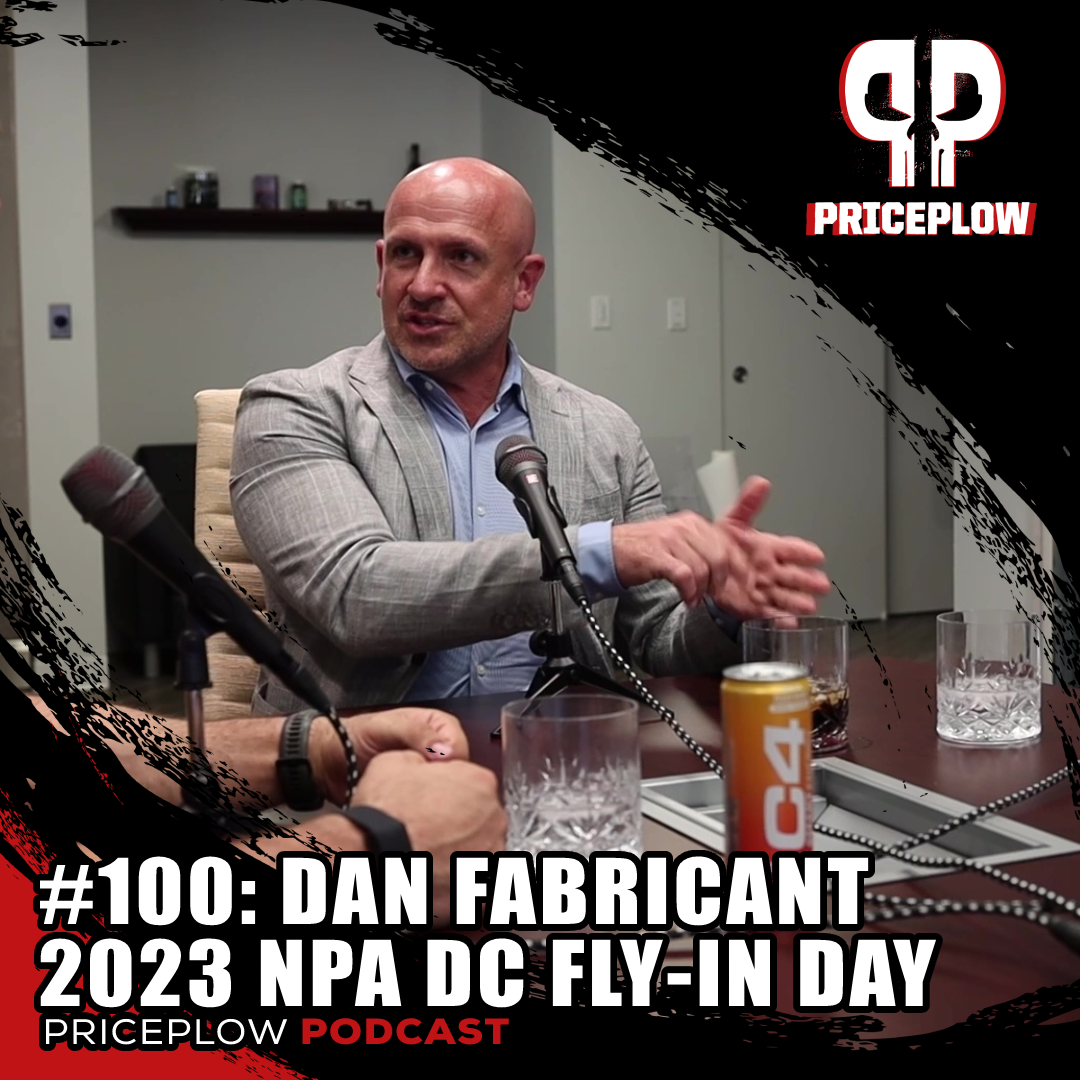
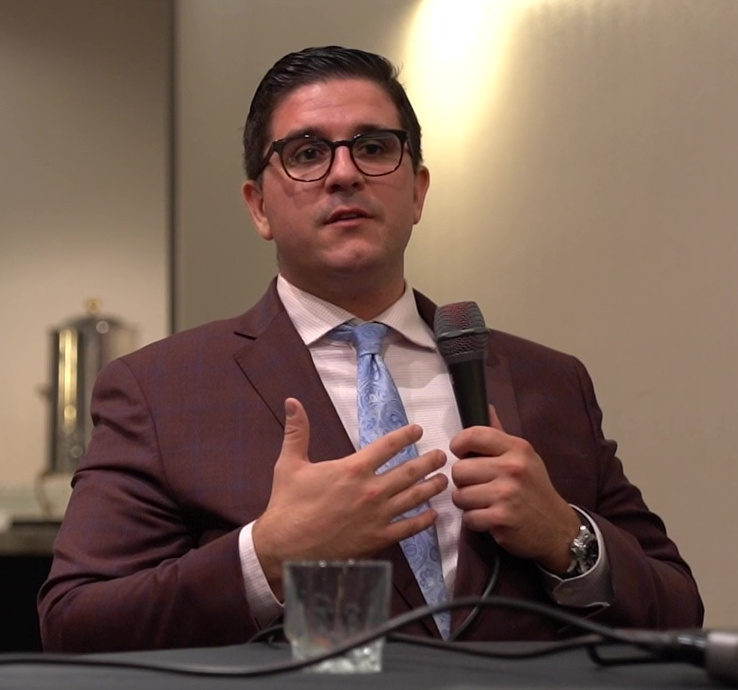
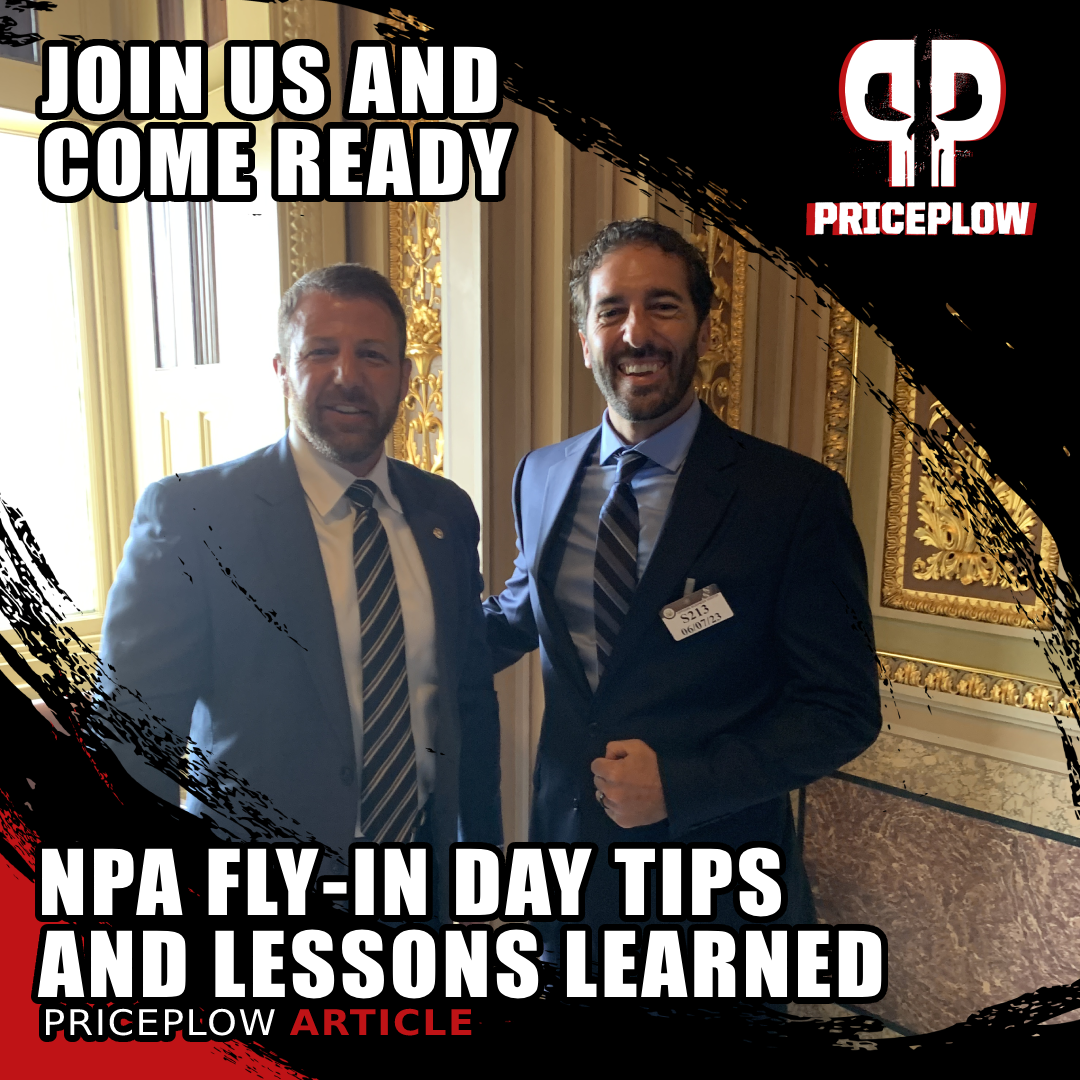
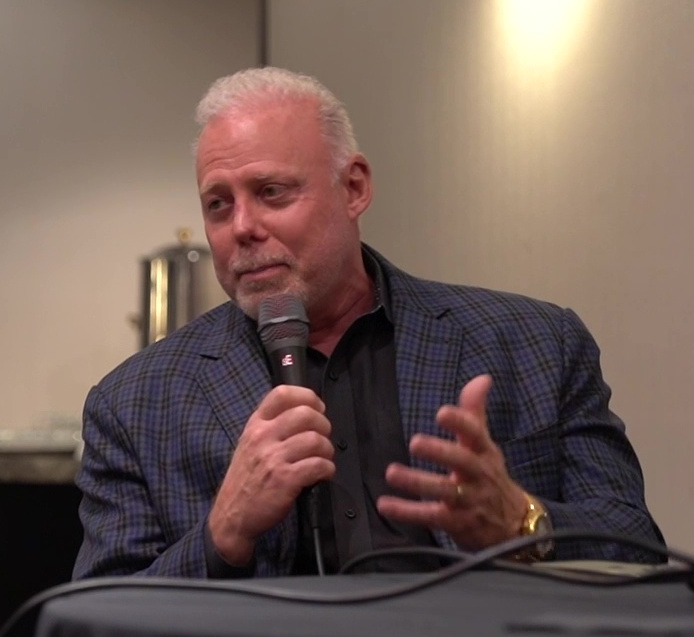
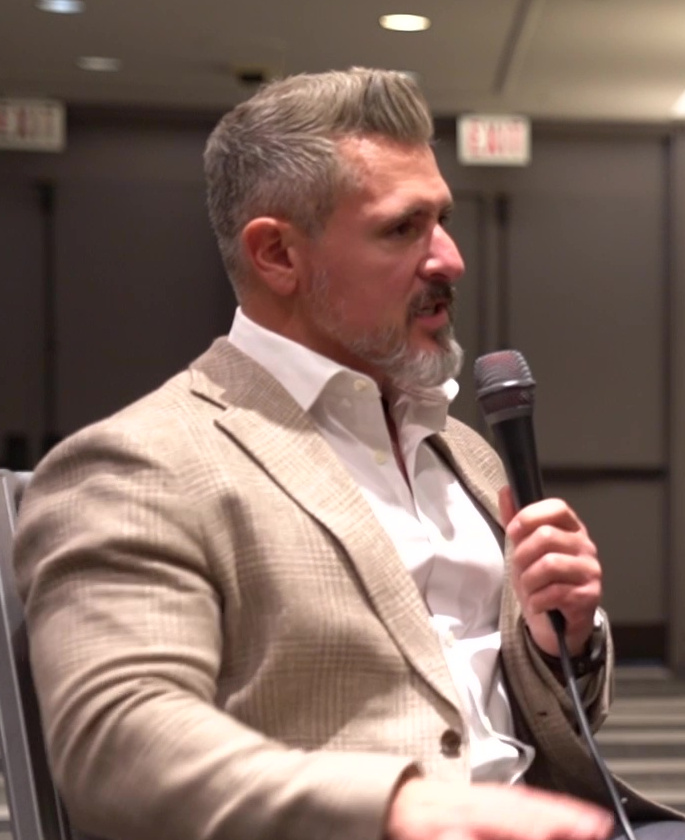
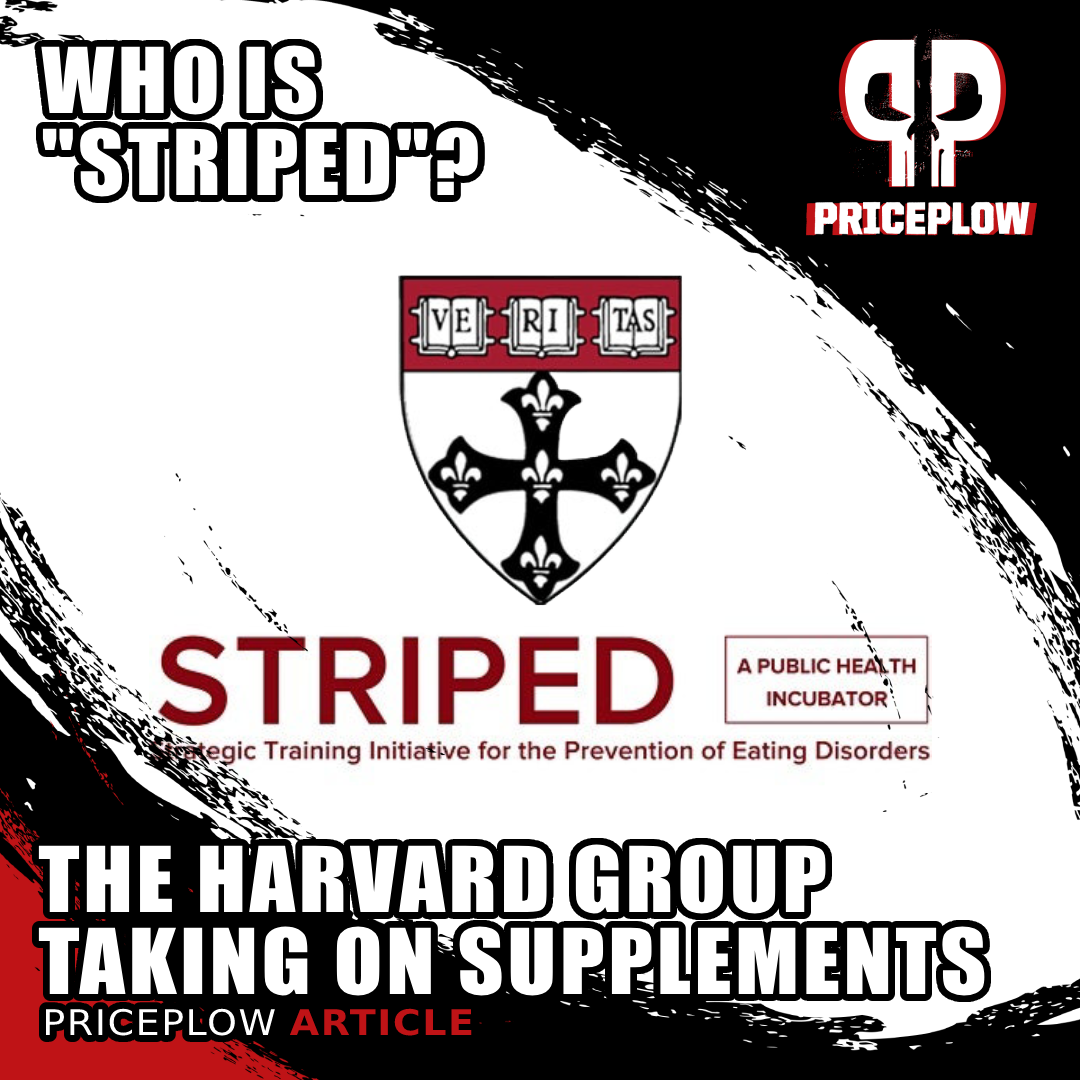
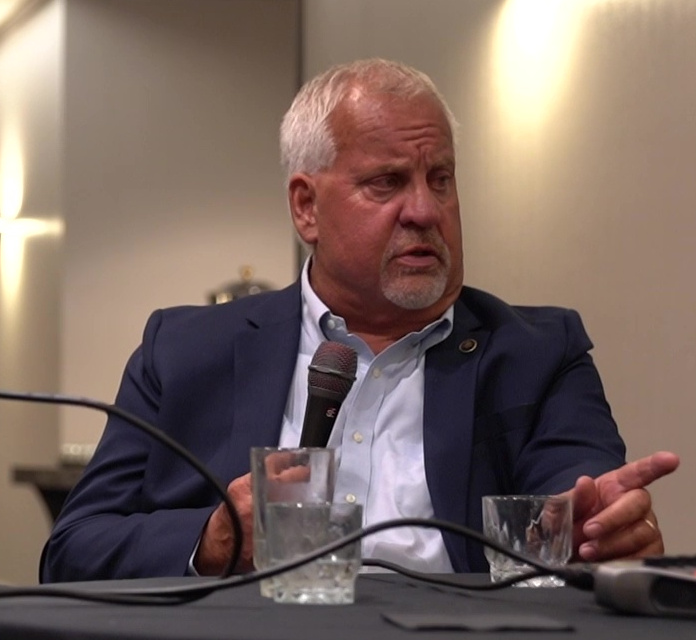
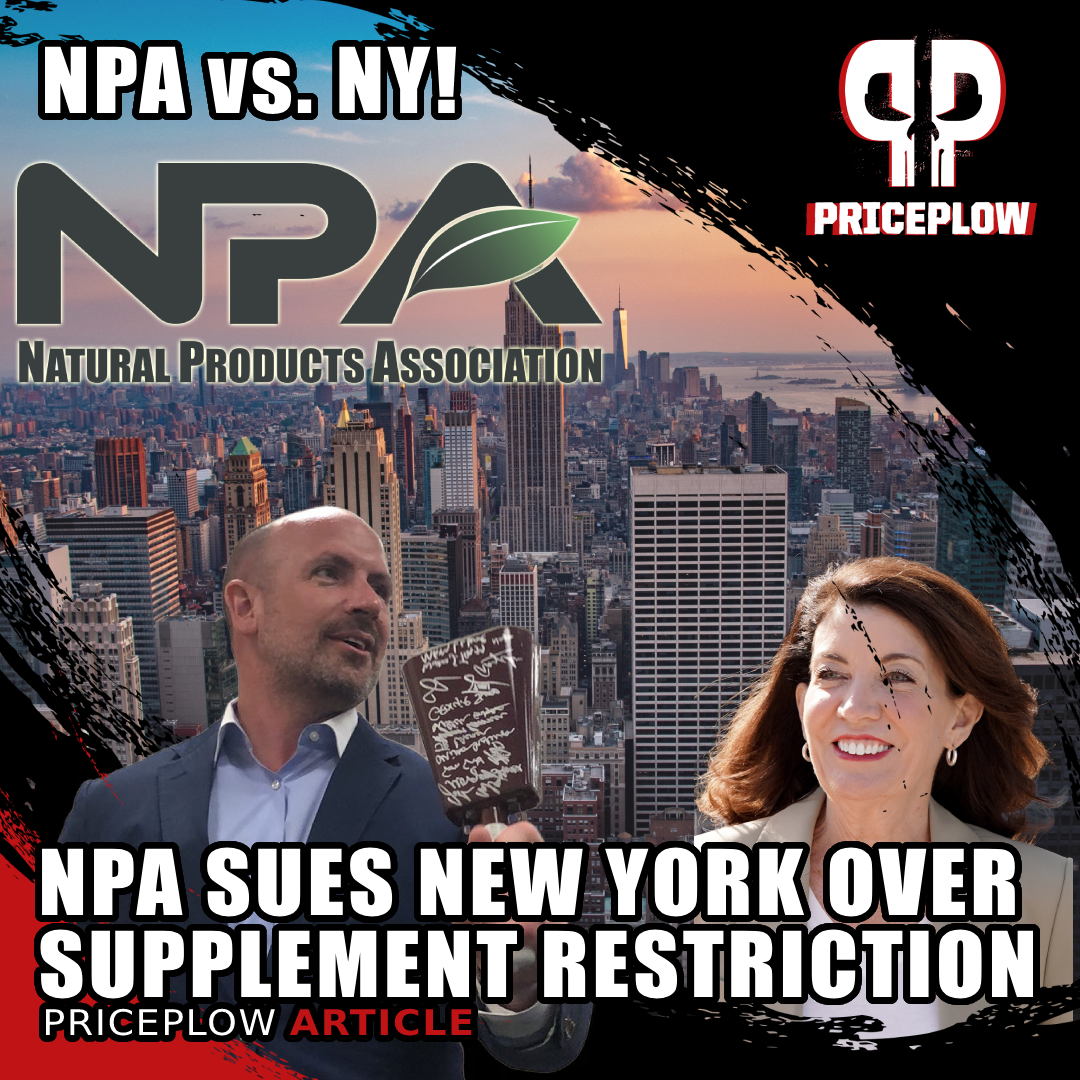
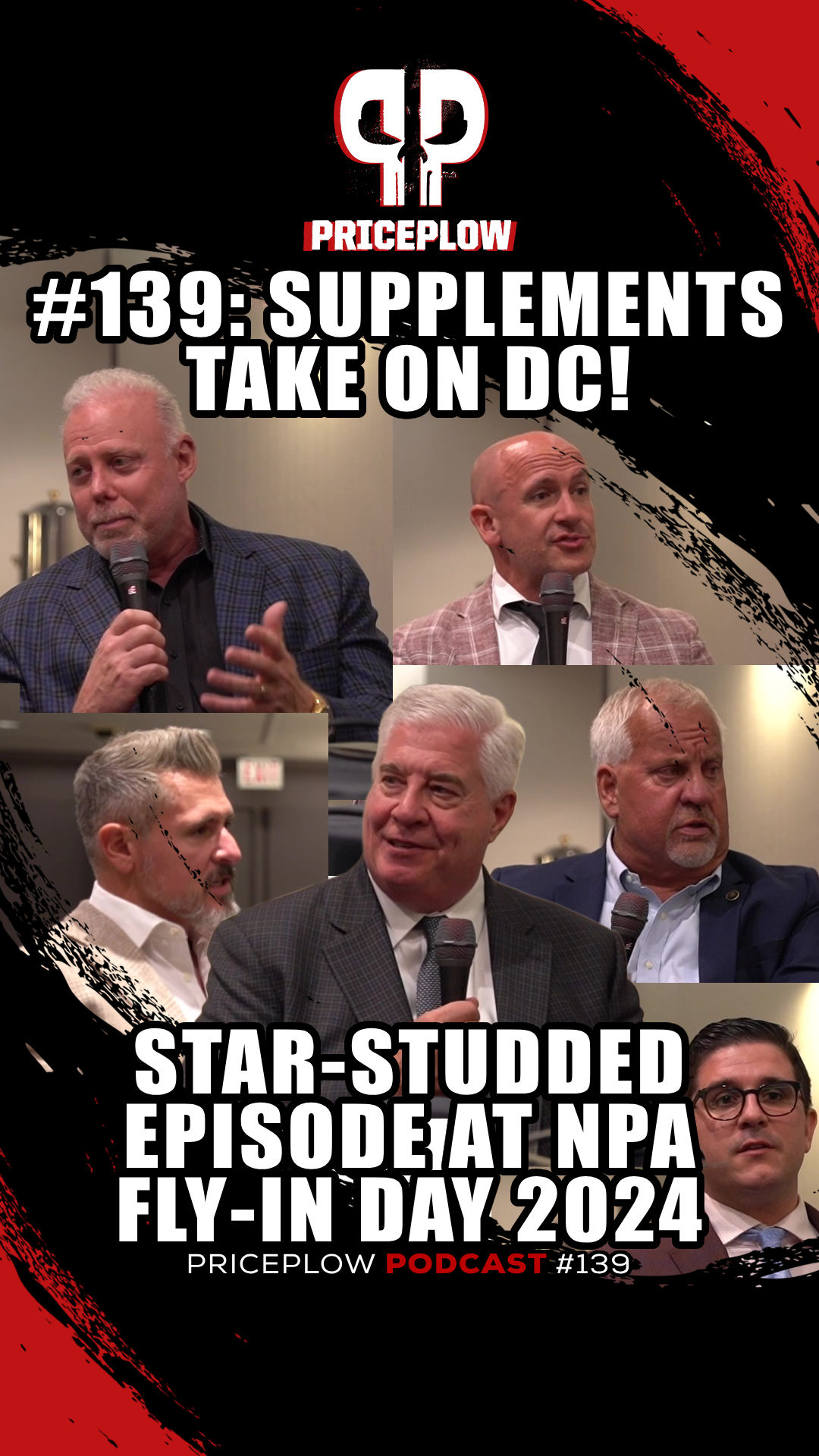
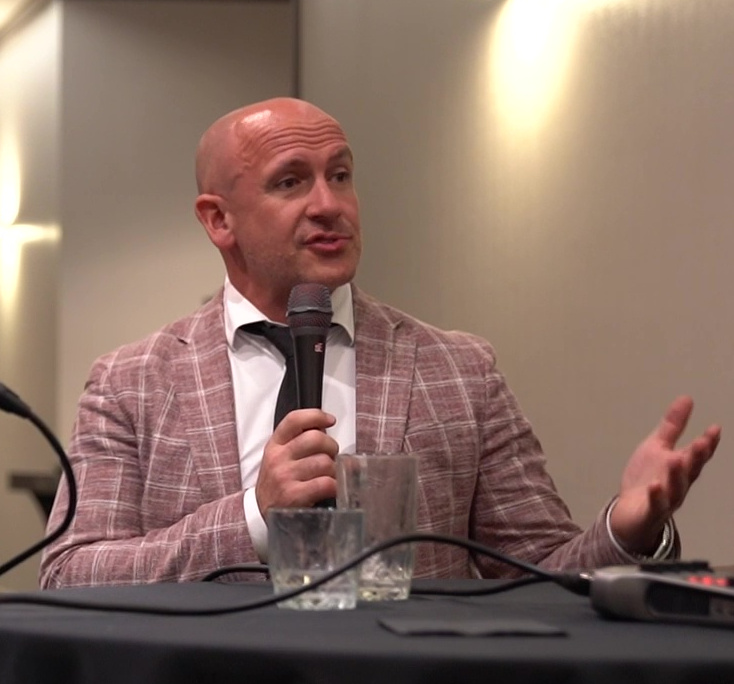


Comments and Discussion (Powered by the PricePlow Forum)